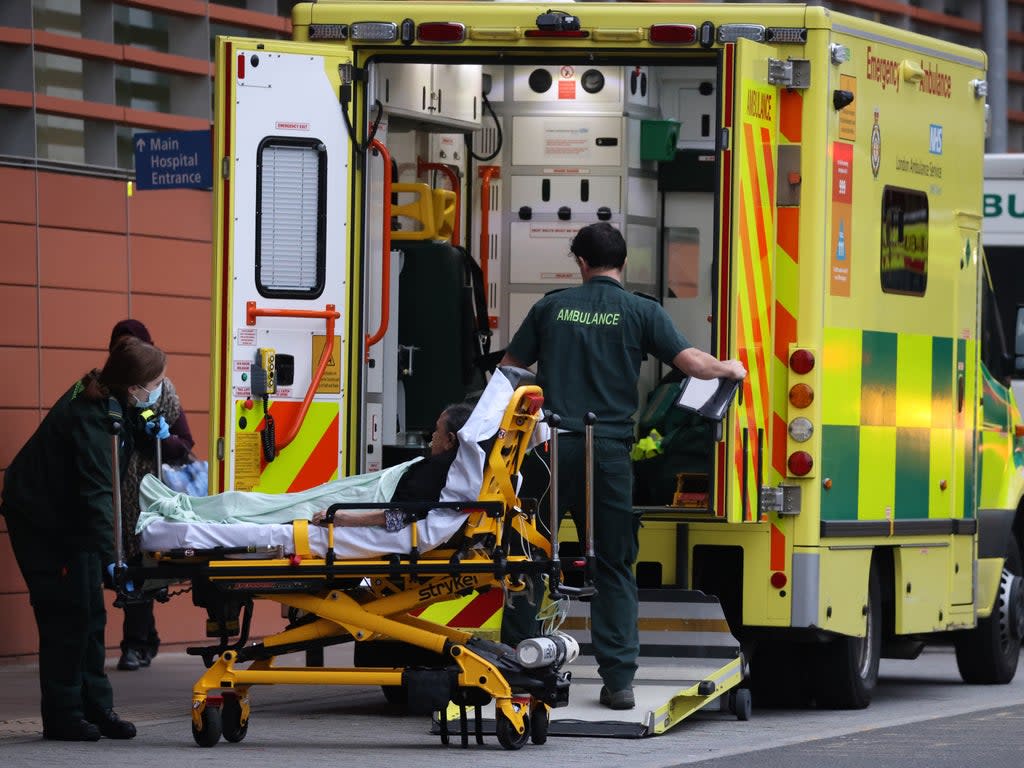Omicron may need to be 90% less severe to avoid large wave in hospital admissions, says Sage

Scientific advisers to the government have warned that Omicron would need to be around 90 per cent less severe than Delta to avoid a winter surge in hospital admissions that reaches the same heights of previous Covid waves.
This estimate is made on the assumption that there will be no further restrictions or “significant” changes in behaviour among the population during the mounting rise in infections, the government’s Scientific Advisory Group for Emergencies said.
Despite its apparent mildness, the variant’s immune-evading properties and high transmissibility means it still holds the potential to infect millions of people over the Christmas period. Even if a smaller proportion falls ill compared to Delta, this may still be enough to overwhelm the NHS.
Sage’s warning comes after two major UK studies found that people infected with Omicron are between 40 to 70 per cent less likely to be admitted to hospital compared to Delta.
However, both papers were based on a small number of cases and lacked data on the over-60s, who have yet to be infected with Omicron at the same rate as younger age groups.
Research from Imperial College London found that people with Omicron are 15 to 20 per cent less likely to be hospitalised, and 40 to 45 per cent less likely to require a stay of one night or more.
A separate Scotland-wide study, called Early Pandemic Evaluation and Enhanced Surveillance of Covid-19, said the variant is associated with a two-thirds reduction in the risk of hospital admission.
It remains unclear whether Omicron is innately less virulent than its viral predecessors, or whether it appears so because of the high levels of immunity in the population.
Even if Omicron is intrinsically less severe, its apparent ability to evade the body’s immune responses means infections could soon rise among older age groups and fuel a “large wave” of hospitalisations, Sage members said during a meeting held on Sunday.
“In the absence of further interventions or significant behaviour change, intrinsic severity would need to be greatly reduced (by around 90 per cent) for hospitalisations to not reach the levels of previous peaks unless the wave peaks early for other reasons,” minutes from the meeting read.
Sage said that it remains the case that the earlier interventions are brought in, the greater the effect they will have in reducing the peak of the current wave and total hospital admissions.
“If measures are implemented later, when hospital admissions have risen significantly, measures may need to be in place for longer and may be too late to avert a period with very high admissions,” members concluded.
Sage’s warnings of record-high infection rates have already come to pass. The latest figures from the Office for National Statistics show that an estimated 1.4 million people in the UK had the virus in the week ending 16 December, the highest number since comparable figures began in autumn 2020.
The data emerged within hours of health secretary Sajid Javid telling broadcasters the government is not planning to make any more announcements on restrictions in England this week.
It follows a warning from NHS national medical director Professor Stephen Powis that the service is on a "war footing" as the Omicron variant sweeps through the country.
During Sunday’s meeting, Sage said that infections in the UK are continuing to increase “very rapidly,” adding that case rates were highest in London. There has also been a rise in over-60s, the advisers said.
“There is accumulating evidence that cases in deprived areas are more likely to be Omicron than in non-deprived areas,” Sage added. “Similarly, those in urban areas are more likely to be Omicron than those from rural areas.”

